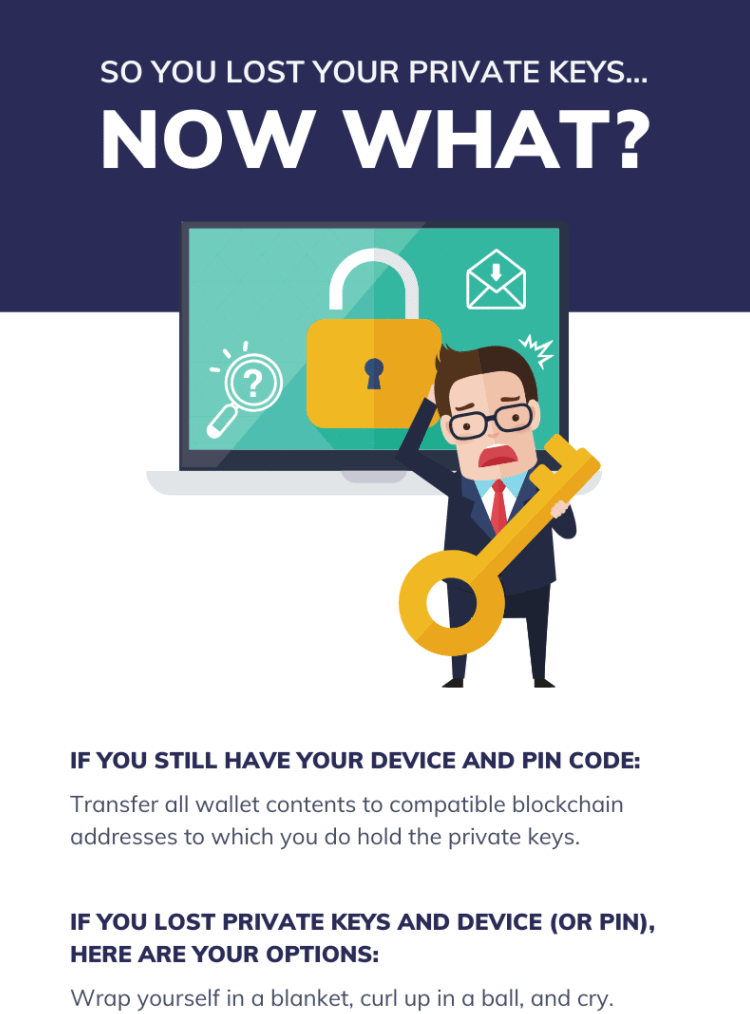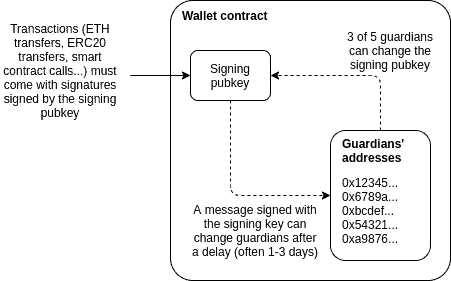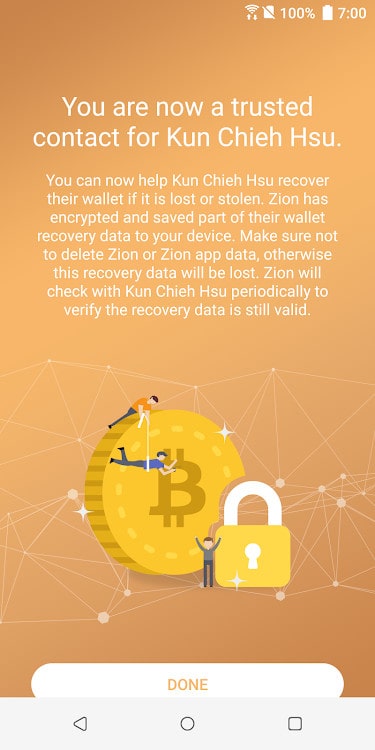Despite the bloodshed of this Monday, cryptocurrencies are still arousing the interest of the mainstream audience, and Vitalik Biterin, the creator of Ethereum, is aware of the great responsibility involved in developing a product that could revolutionize the world of finance… Especially if it comes with the responsibility of becoming your own bank.
In a blog post dated January 11th, Vitalik spoke about the importance of developing methods that allow users to recover their wallets’ private keys in case of emergency. This is currently impossible without the help of trusted third parties

But there may be a solution.
What Are Social Recovery Wallets?
Social recovery wallets work like any ordinary wallet, except that they add guardians to the equation. Guardians are a group of people with the ability to sign a petition from the original wallet owner to facilitate access if the owner loses or forgets their keys for any reason.
These third parties would ideally be anonymous to each other. This would avoid the possibility of communication between guardians that could be detrimental to the wallet owner. The owner would contact them separately if necessary and they would not know the key to the original wallet.

For Vitalik Buterin, this is a simple and more secure solution than even the use of multi-signature wallets.
If a user loses their signing key, that is when the social recovery functionality would kick in. The user can simply reach out to their guardians and ask them to sign a special transaction to change the signing pubkey registered in the wallet contract to a new one. This is easy: they can simply go to a webpage such as security.loopring.io, sign in, see a recovery request, and sign it. About as easy for each guardian as making a Uniswap trade.
Why Do We Need Social Recovery Wallets?
Due to their decentralized nature, the use and storage of any crypto tends to be entirely and exclusively the individual’s responsibility. And as appealing as the idea of being your own bank may sound, in the end, the responsibilities associated with this premise tend to be potentially detrimental to many users, especially newcomers.
There are many examples of this, ranging from a novice Peter Schiff claiming that his wallet lost its password to experts such as Coil CEO Stefan Thomas, who has only two attempts left to retrieve the password of a wallet with over $200 million in Bitcoin before losing the funds forever.
For Buterin, this is unacceptable.
An ecosystem whose only answer to losses and thefts is a combination of 12-step tutorials, not-very-secure half-measures, and the not-so-occasional semi-sarcastic “sorry for your loss” is going to have a hard time getting broad adoption.
Will These Wallets Be Part Of The Future?
Although promising, social recovery wallets are not very popular in the crypto-verse. Major manufacturers and developers have not yet implemented this functionality.
Of all of them, perhaps the largest company that has relied on this technology is HTC. Its Zion wallet allows users to set up a number of guardians and communicate with them via email in case of emergency.

Vitalik Buterin recommends Argent Wallet and Loopring, ensuring that the user experience is “smooth” with any of those.
And while it may not be a bad idea to try some of these products, for now, bitcoiners will continue to feel comfortable being their own bank… until they have a problem.
 cryptopotato.com
cryptopotato.com